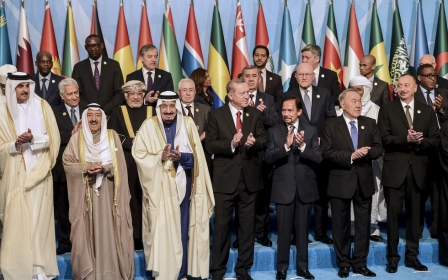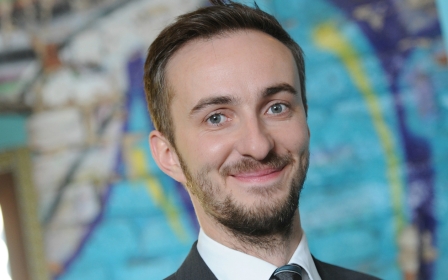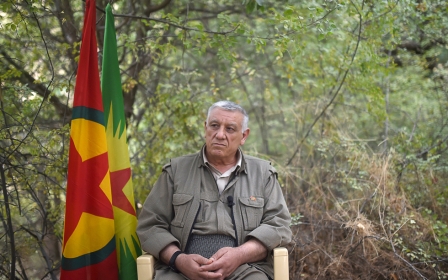Turkey's parliament speaker seeks religious constitution

Turkey should have a religious constitution, parliament speaker Ismail Kahraman said on Monday, in comments that will likely add to concerns of creeping religiosity under the ruling AKP party.
"As a Muslim country, why should we be in a situation where we are in retreat from religion?" state-run news agency Anatolia quoted him as saying.
"We are a Muslim country. As a consequence, we must have a religious constitution," the AKP lawmaker told a conference in Istanbul.
"Secularism cannot feature in the new constitution."
Critics accuse President Recep Tayyip Erdogan's Islamic-rooted AKP of eroding the secular values laid down by modern Turkey's founder Mustafa Kemal Ataturk since it took power in 2002.
Over the past two years, the government has lifted bans on women and girls wearing headscarves in schools and civil service.
It also limited alcohol sales and made efforts to ban mixed-sex dorms at state universities.
Kemal Kilicdaroglu, the head of Turkey's main CHP opposition party, slammed the speaker's comments.
"The chaos that reigns in the Middle East is the product of ways of thinking that, like you, make religion an instrument of politics," Kilicdaroglu wrote on Twitter.
"Secularism exists so everyone can practise their religion freely, Mr Kahraman!"
Since the AKP's re-election in November, the government has said it wants to prioritise replacing Turkey's constitution, inherited from a military junta after a coup in 1980.
Several rounds of negotiations have failed - most recently in February - with the opposition rejecting the increasingly powerful role of the presidency under Erdogan.
Kahraman on Monday backed a "presidential system" for Turkey, and rejected claims that this would push the country towards authoritarianism.
"Some people say that [a strengthened presidency] means dictatorship," he said. "Where is this link? Is [US President Barack] Obama a dictator?"
New MEE newsletter: Jerusalem Dispatch
Sign up to get the latest insights and analysis on Israel-Palestine, alongside Turkey Unpacked and other MEE newsletters
Middle East Eye delivers independent and unrivalled coverage and analysis of the Middle East, North Africa and beyond. To learn more about republishing this content and the associated fees, please fill out this form. More about MEE can be found here.




